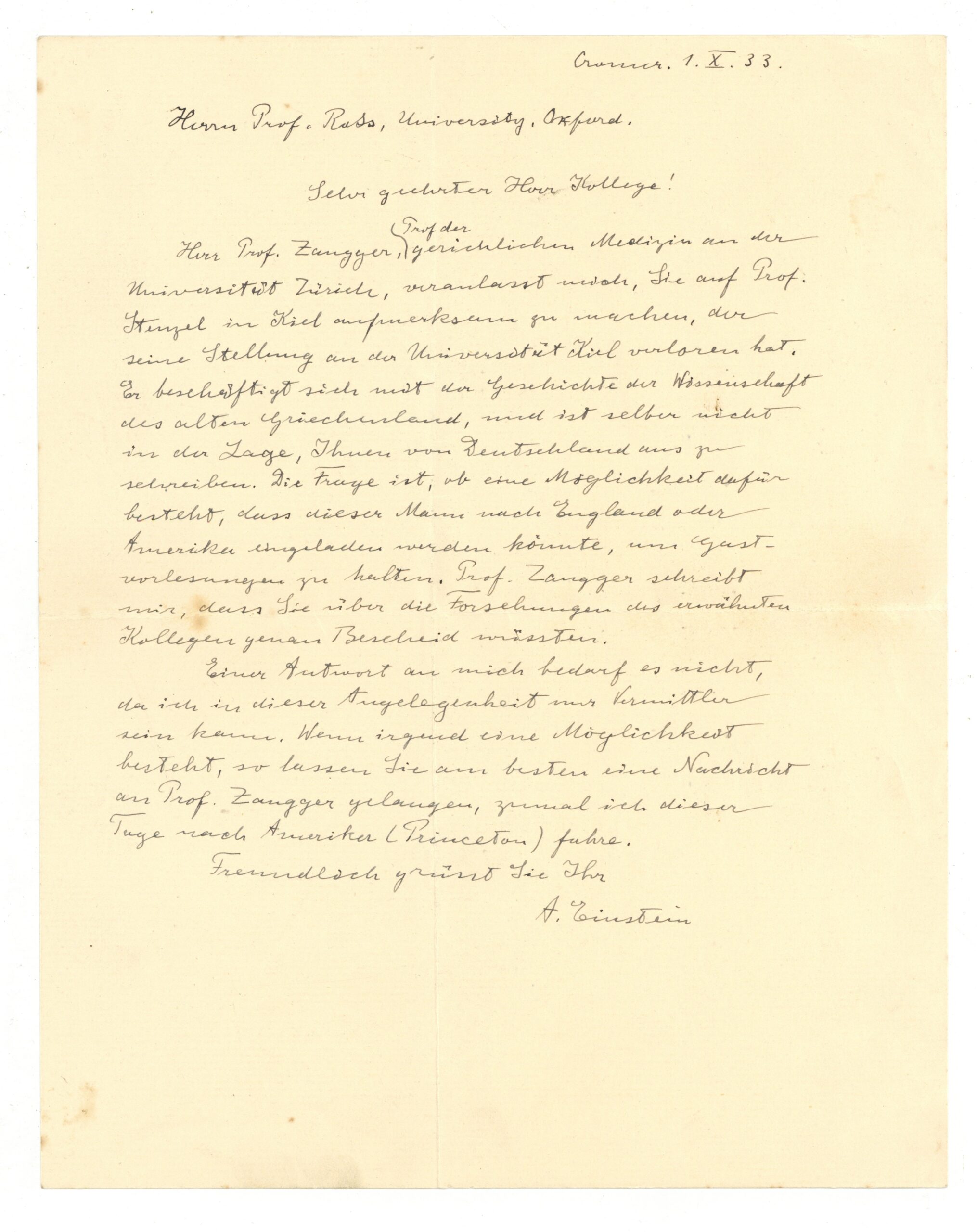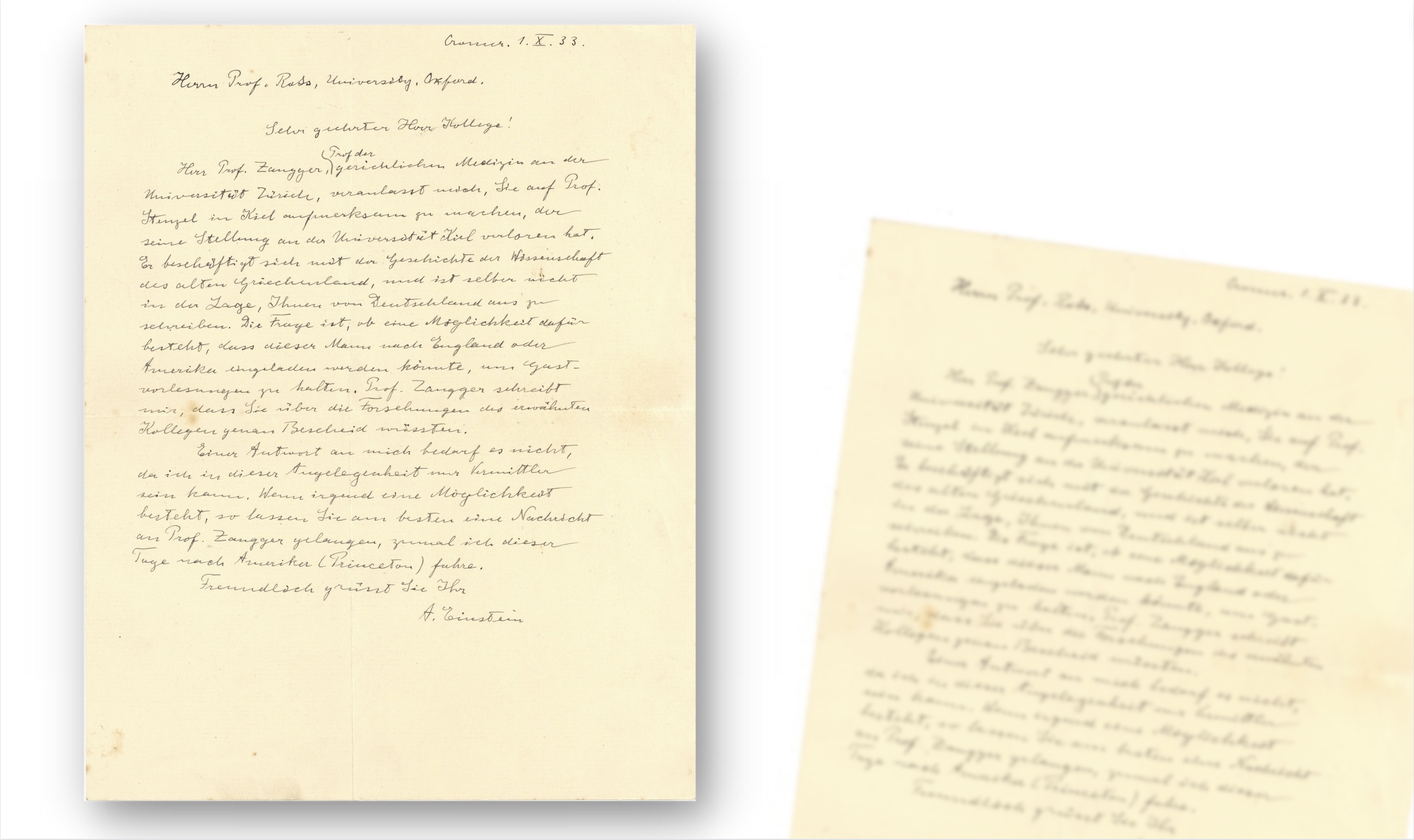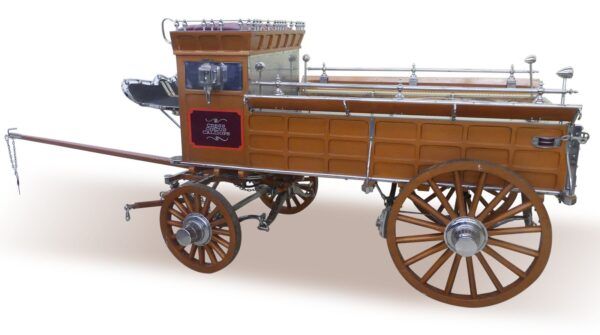#Albert #Einstein #letter #sells #charity #Antique #Collecting
 A remarkable collection of correspondence penned by giants of the 20th century to an Oxford academic sold in London last week.
A remarkable collection of correspondence penned by giants of the 20th century to an Oxford academic sold in London last week.
The 22 letters from people including Albert Einstein, Winston Churchill, Charles De Gaulle and Chiang Kai-shek were recently gifted by the family of Sir William David Ross (1877-1971) to Oxfam. The proceeds of the sale at Chiswick Auctions on October 10 raised £28,000 for the charity.

Sir William David Ross, a Scottish philosopher, translator, World War I veteran and civil servant was provost of Oriel College, Oxford, from 1929-47, and Vice-Chancellor of the University of Oxford from 1941-44. Sitting on many governmental committees, his address book included many of the great and the good of 20th-century society.
The collection was donated to Oxfam by the family of Sir William’s daughter, Katherine Ross via Oxfam Valuer Shelley Hitch. In 1942, Katherine joined the first meeting of the Oxford Committee for Famine Relief – now known as Oxfam – in her local church. She credited the fact that her father had opened their family home to people fleeing Nazi-occupied Europe with igniting her interest in Oxfam’s work.
Shelley said: “We are so grateful for the support of Katharine Ross throughout her life and for her family gifting us such treasured and important letters. The money raised will help Oxfam and our partners continue to fight the injustice of poverty around the world.
One of two letters to Ross from Albert Einstein was written (in German) from Cromer in north Norfolk on October 1, 1933. At the time Einstein and his wife Elsa, who had fled from Germany when Hitler came to power, was receiving refuge in the UK before moving to the US on October 17, 1933. Concerned for the well-being of a colleague, he writes:
“Professor Zangger at the University of Zurich, asked me to make you aware of Prof. Stenzel in Kiel, who lost his position. He researches the history of science in ancient Greece and he is not in the position to contact you from Germany. The question is if there is a possibility to invite this gentleman to England or America as a guest lecturer.”
Einstein suggests Ross contact Zangger directly “especially as I will be soon travelling to America (Princeton)”.
Professor Julius Stenzel, a classical philologist and philosopher, was a member of a disciplinary committee that had expelled some Nazi students from the university in 1930. In 1933, he was transferred to the University of Halle where he died two years later. The letter made £7,500.
Two typed letters signed by Winston Churchill made £2,375 and £1,750 each. The first, dated Whitehall Place, May 1918, references Churchill’s recommendation that Ross be given and OBE. The second, dated Downing Street, December 1942, offers thanks for a copy of America: The Story of a Free People “which has been so kindly dedicated to me as well as to President Roosevelt” by the two authors (Allan Nevins and Henry Steele Commager).”
Offered as one lot was six wartime typed letters from Charles de Gaulle. Variously dated between August 1940 to September 1944 and written from Carlton Gardens, London and Paris, in the earliest letter the leader of the Free French invites Ross to sit on the Patronage Committee of the recently established Association of Friends of French Volunteers. In the last he thanks Ross for his kind words saying: “Testimonials from friends like you are particularly valuable to me. That they come from England adds even more value”. The group made £500.
Among the most valuable of the documents is one carrying the autograph of the Chinese Republic politician Chiang Kai-shek. Written in Chinese script, with a contemporary translation, it offers his thanks for the hospitality shown by the university to the Chinese Mission to Oxford university and hoped the visit will help strengthen the Sino-British cultural relationship. The document made £3,750.




